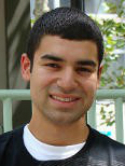Mechanisms of leukemia resistance to antibody dependent cellular cytotoxicity Journal Article
| Authors: | Dubrovsky, L.; Brea, E. J.; Pankov, D.; Casey, E.; Dao, T.; Liu, C.; Scheinberg, D. A. |
| Article Title: | Mechanisms of leukemia resistance to antibody dependent cellular cytotoxicity |
| Abstract: | Specific immunotherapy for acute leukemia remains a great unmet need. Native unmodified monoclonal antibody therapies, while promising, are inadequately effective for these malignancies, and multiple mechanisms for failure have been described. Antibody-dependent cellular cytotoxicity or phagocytosis is the primary modality of mAb-mediated cell killing in vivo, but ultimately leads to relapse of the leukemias, in model systems and in humans. By use of a T-cell receptor mimic mAb ESKM, derived against a WT1 peptide expressed in complex with HLA-A*02:01, whose only mechanism of therapeutic action is ADCC, we evaluated the mechanisms of leukemic relapse from its potent therapeutic action in mouse xenograft models of human leukemia. Leukemia escape was not associated with loss of the antigenic target, downregulation of cell surface HLA, antibody pharmacokinetic or biodistribution issues, or development of leukemia cell-intrinsic resistance to ADCC. Interestingly, the rapidity of leukemic growth determined whether leukemia was able to evade cytotoxicity independent of the presence of sufficient effector cells. By engineering leukemia cells with upregulated p27Kip1 and slower cell cycling times, we show that relapse was inversely correlated with growth rates resulting in the eventual inadequacy of effector to target ratio. Moreover, lack of migration of effector cells into lymphomatous pockets of ALL also allowed local escape. Successful leukemia therapy with mAb might therefore be improved in similar situations by combination with measures to reduce burden and slow leukemia cell growth. © 2016 Taylor & Francis Group, LLC. |
| Keywords: | leukemia; human cell; nonhuman; rituximab; flow cytometry; animal cell; mouse; interleukin 2; gene expression; cell growth; protein tyrosine kinase inhibitor; molecular cloning; whole body radiation; cell migration; down regulation; upregulation; trastuzumab; doxycycline; clonogenic assay; antibody; bioluminescence; cell mediated cytotoxicity; human; article; adcc; escape mechanisms; t-cell receptor mimicking |
| Journal Title: | OncoImmunology |
| Volume: | 5 |
| Issue: | 9 |
| ISSN: | 2162-4011 |
| Publisher: | Landes Bioscience |
| Date Published: | 2016-08-03 |
| Start Page: | e1211221 |
| Language: | English |
| DOI: | 10.1080/2162402x.2016.1211221 |
| PROVIDER: | scopus |
| PMCID: | PMC5048777 |
| PUBMED: | 27757306 |
| DOI/URL: | |
| Notes: | Article -- Export Date: 1 November 2016 -- Source: Scopus |
Altmetric
Citation Impact
BMJ Impact Analytics
Related MSK Work









